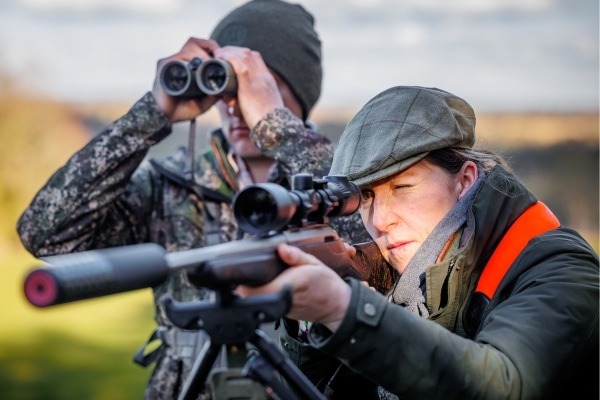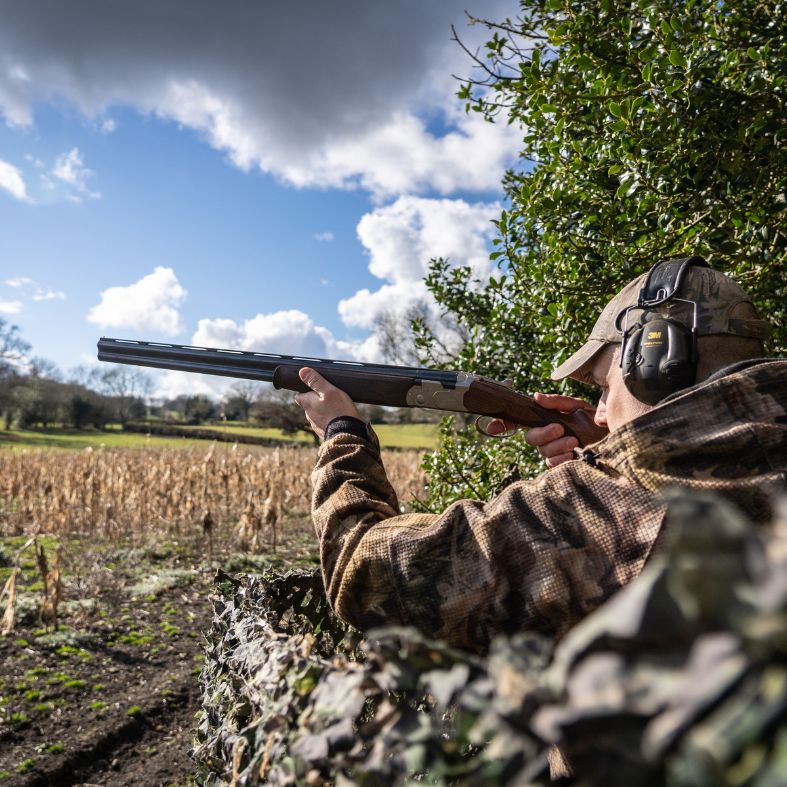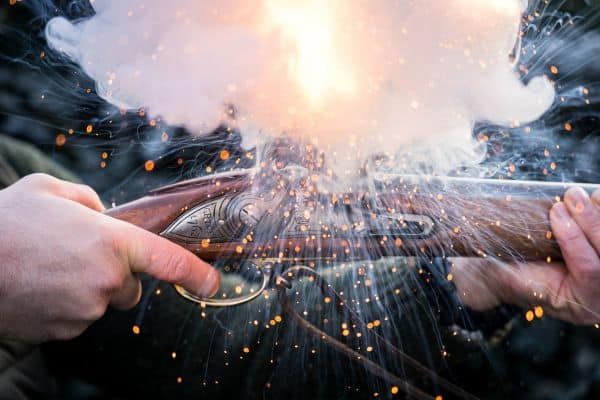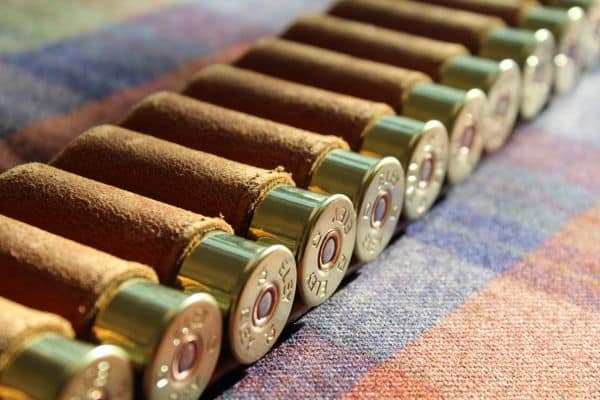
Borrowing rifles on private premises
Explaining the law around what you can and can’t do when it comes to borrowing a rifle for use on private premises.
Get information on the legal shooting season for mammals and birds in the UK.
Apply for funding for your project or make a donation today
Comprehensive information and advice from our specialist firearms team.
Everything you need to know about shotgun, rifle and airgun ammunition.
Find our up-to-date information, advice and links to government resources.
Everything you need to know on firearms law and licensing.
All the latest news and advice on general licences and how they affect you.


Home » Firearms » Police involvement in shooting » Additional quarry shooting conditions on firearms certificate
Explaining the law around the addition of quarry shooting conditions to a firearms certificate by police firearms licensing departments, including why this might happen and what to do if you are refused an ‘any lawful quarry condition’.
Section 27(2) of the 1968 Firearms Act states:
“A firearm certificate shall be in the prescribed form and shall specify the conditions – (if any) subject to which it is held”.
Section 10.40 of Firearms Law: Guidance to the police, says that the chief officer may impose extra conditions “if he feels that they are necessary to ensure effective operation of the firearms controls and minimise risk to public safety”.
“Public safety” must not be extended to include restrictions on the shooting of certain legal quarry species. Public safety relates to the holder’s competence to take a safe shot when using a firearm over land. This assessment is dealt with at initial grant.
Individual chief officers are not permitted by law to have blanket policies. This is established by the case of R Vs Wakefield Crown Court, ex parte Oldfield. The ratio of this case says that where a public official has a policy, then if it is to be legal it must admit of exceptions.
Accordingly, forces cannot refuse to entertain requests for open conditions before an arbitrary timeframe has lapsed.
Chapter 10 (‘firearm certificate procedure’) of the Home Office guidance 2013 establishes the following: 10.36 “…chief officers will wish to be cautious in imposing conditions that might amount to a constructive refusal to grant or renew a certificate, that is, additional conditions that would make possession or use so difficult as to be redundant in practice. There is a right of appeal against a decision to vary existing conditions in section 29, but not against the initial decision to impose conditions.”
10.37 “Every effort must be made to limit the number of additional conditions imposed on a firearm certificate and ensure that they are not contradictory. Care should be taken, however, to ensure that all ‘good reasons’ for which a firearm is possessed are allowed for, for instance stalking and target shooting.”
NOTE. Further to chapter 10 – chapter 13 (‘good reason’) says: 13.9 “…it is the responsibility of the shooter and the shooting community to know what calibre is suitable for which quarry, and when certain quarry is lawful (including the need to obtain or rely upon a licence from the relevant licensing authority to permit the shooting of protected species). Once initial “good reason” has been established for the possession of a firearm, there is no requirement for “good reason” to be demonstrated for additional quarry species or amendments providing the firearms are not underpowered for the species (see also paragraph 13.17). A cartridge should be capable of achieving a humane kill, and it is the responsibility of the shooter to ensure that any excess energy will be absorbed by the backstop. The “any other lawful quarry” condition (which also covers protected species that the certificate holder is licensed to shoot) should be applied. If an applicant is suitable to hold a firearm certificate and is deemed safe to do so, there is no requirement to restrict the quarry they shoot by the use of conditions.”
13.26 “It is desirable that new applicants should have some previous experience of the safe use of firearms before using such rifles. Experience is neither cartridge nor ammunition type exclusive. It may include the shooting of any quarry species. The aspect that police are looking to be satisfied about is the competency of the applicant to take a safe shot every time. The shooting of any quarry requires a safe backstop for the shot, and such experience is transferable between quarry species.”
The Home Office has said “We would certainly not wish to force shooters to acquire more guns than they need or to leave guns unattended because they are obliged to carry a selection.”
BASC welcomes the changes brought by the 2013 Home Office guidance. These changes allow rifles to be used flexibly to cover all legal species for a day’s activities. To carry two or more firearms due to conditions or arbitrary views on acceptable practice could only be shown to achieve increased risk to public safety.
10.38 “There is no requirement to establish ‘good reason’ for additional conditions or the addition of quarry species to an existing condition where ‘good reason’ already exists for the possession of a firearm in the first instance (See chapter 13). Firearms should be conditioned to provide flexibility with quarry shooting by allowing all lawful quarry (see Appendix 3).”
10.45 “…In all circumstances the “any lawful quarry condition” should be applied (see appendix 3)”.
13.17 “The table at the end of this chapter provides guidance on whether, for the purposes of establishing “good reason”, a particular calibre is suitable for shooting certain quarry. It should be noted that the list of calibres is not exhaustive but will serve as a useful guide.”
13.18 “…This, however, should not exclude the use of a larger or more powerful firearm, for which “good reason” has been established, to shoot smaller quarry (see 13.9).”
Any refusal to use the any lawful quarry condition demonstrates that the licensing staff either have not read, or are not prepared to follow, the Home Office guidance.
It is almost certainly ultra vires for police to impose conditions preventing a certificate holder from carrying out an operation that would otherwise be lawful. They are there to enforce the law, not to invent or embellish it.
Got a question? Email us on firearms@basc.org.uk or call 01244 573 010.
© BASC June 2023

Explaining the law around what you can and can’t do when it comes to borrowing a rifle for use on private premises.

This branch of the target-shooting sports has been growing in popularity over the past few years. It involves using either original old guns, or replicas of modern manufacture.

Traditionally, different pellet sizes have been favoured for different types of shooting but how does it equate in non-lead shot?